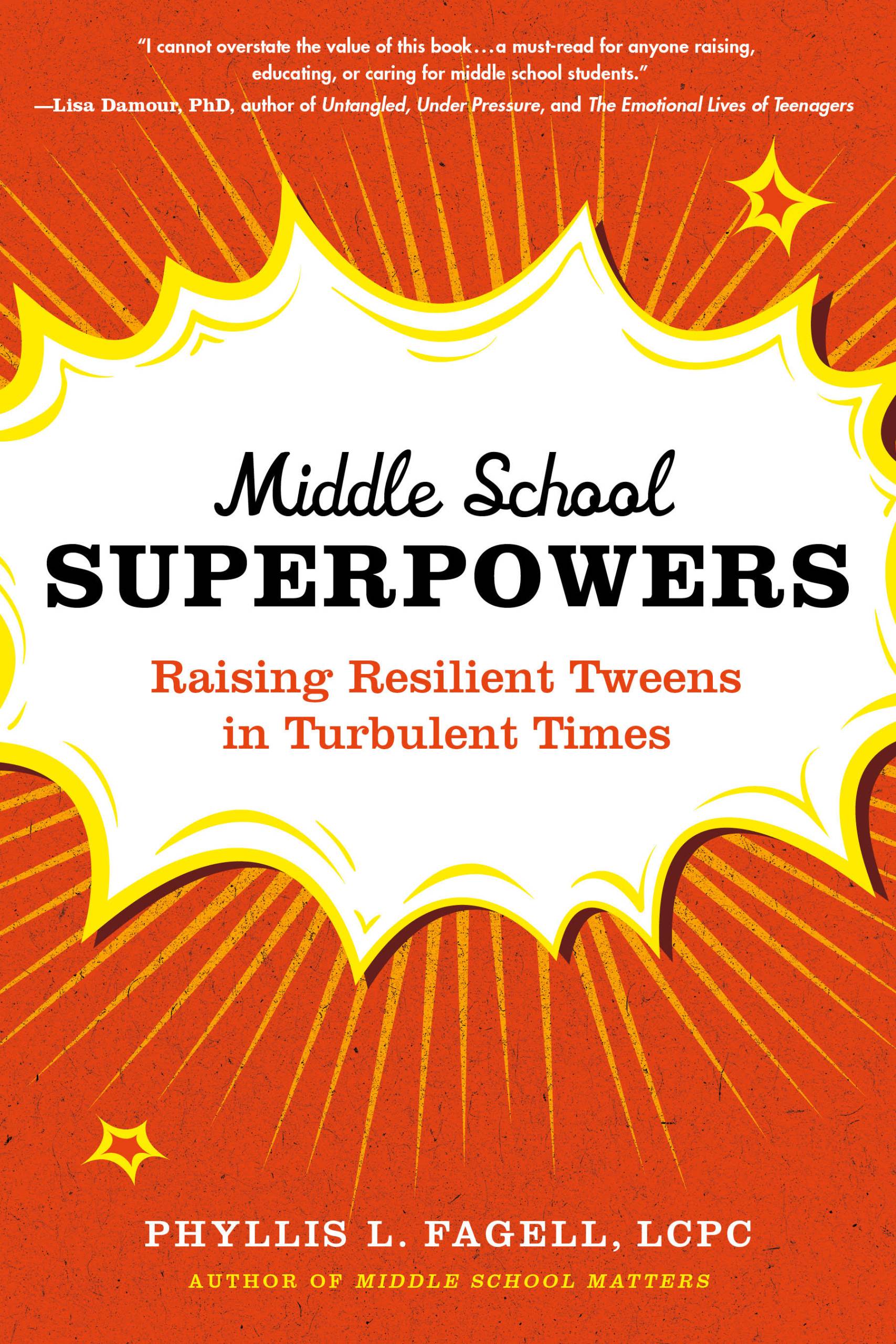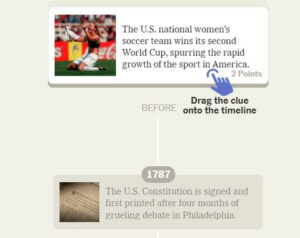Excerpted from “MIDDLE SCHOOL SUPERPOWERS: Raising Resilient Tweens in Turbulent Times by Phyllis L. Fagell.” Copyright © 2023. Available from Hachette Go, an imprint of Hachette Book Group, Inc.
Challenge distorted thinking
Tweens think they wouldn’t lie to themselves, but they do. They can catastrophize, think in all-or-nothing terms, jump to conclusions, overgeneralize, discount the positive, or blame themselves or others when something goes wrong, to name a few common thinking errors. For instance, if ten people tell a kid that they love their haircut, but one person says, “I see you got a haircut,” they might spend the rest of the day trying to decipher the one ambiguous comment. If a teacher changes a kid’s seat because they’re disruptive, the kid might conclude that the relationship is irreparably damaged. Or if they bomb a history test, they might think, “I suck at history and the teacher clearly hates me, so what’s the point?” That kind of defeatist, unproductive thinking serves only to worsen their suffering.
At the core of cognitive behavioral therapy (CBT) is the idea that how you think impacts how you feel and act. In other words, your thoughts determine your feelings and behavior. That’s why it’s so important to help your middle schooler learn to recognize when their thoughts are out of whack. If that kid who failed the history test adopted a more realistic stance, for instance, he might realize, “It’s not going to be fun to tell my parents that I failed, and I’m embarrassed and upset, but it’s literally a history test now. Next time, maybe I could ask the teacher for help or join a study group.”
As I tell kids, being ruthlessly self-critical is like bullying yourself. When I facilitate Worrybusters groups at school, I might ask students, “If I could listen in on what you tell yourself when you’re really beating yourself up, what would I hear?” After students share their self-critical thoughts with peers, they’re often surprised but relieved that others are equally hard on themselves. They also realize they’d never talk to a friend the way they talk to themselves, and they develop more self-compassion. (As another side benefit, the kids typically bend over backward to compliment one another.)
 Once you bring your child’s thoughts to the surface, teach them how to talk back to their inner critic. If they’re telling themselves, “I’m not smart enough to be in the advanced math class” or “I want to go to the party, but I’ll be too awkward to talk to anyone,” ask them questions such as “How useful is it to get caught up thinking that way? What’s the best-case scenario? What’s the evidence that the worst will happen? What’s the evidence it won’t happen? What resources or help would you need to cope with the worst-case scenario? Have you ever been in a similar situation? How did you handle it? Have you seen anyone else experience something similar and come out OK? How did they deal with it?” You also can ask them how they’d reassure a friend who felt the same way.
Once you bring your child’s thoughts to the surface, teach them how to talk back to their inner critic. If they’re telling themselves, “I’m not smart enough to be in the advanced math class” or “I want to go to the party, but I’ll be too awkward to talk to anyone,” ask them questions such as “How useful is it to get caught up thinking that way? What’s the best-case scenario? What’s the evidence that the worst will happen? What’s the evidence it won’t happen? What resources or help would you need to cope with the worst-case scenario? Have you ever been in a similar situation? How did you handle it? Have you seen anyone else experience something similar and come out OK? How did they deal with it?” You also can ask them how they’d reassure a friend who felt the same way.
#Mental #health #tools #middle #schoolers #perspective #KQED




More Stories
Are Leadership Skills The Key To Achieving Higher Employee Retention Rates?
Instructional Design Consultant
Dozens of Valentine’s Day Quotes That Will Warm Your Heart